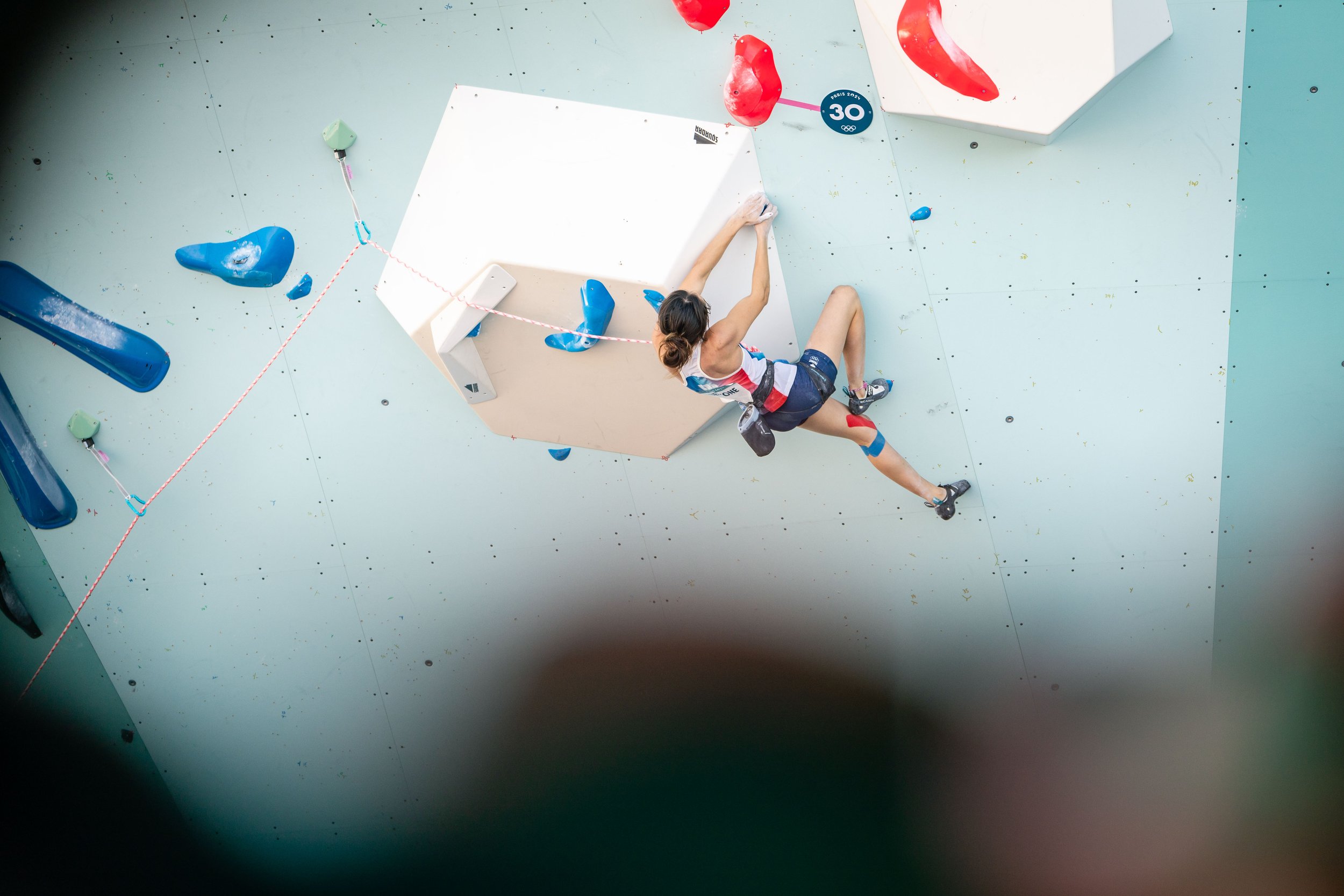SUPPORTING YOUR CHILD'S CLIMBING AMBITIONS
Watching your child confidently climb a seemingly impossible route or boulder, push beyond their limits, and overcome their fear of failing and falling—it’s both thrilling and nerve-wracking, isn’t it? As parents, you are right there with them, heart in your throat, cheering them on from the ground. You celebrate their victories and help them pick up the pieces when things don’t go as planned. You are there in moments of joy, happiness, and success, but also when your child is disappointed, upset, afraid, or struggling.
No one can see how much effort and dedication your child puts into their climbing better than you can. And they wouldn't be where they are if it wasn't for your support. You invest in the best coaches, the latest gear, and endless hours at the climbing gym—not to mention driving them to training sessions and competitions. But have you thought about the role their mindset plays in all of this? Just as muscles need training, so does the mind—and this aspect is often still overlooked. Psychological support can be the key to unlocking their true potential and is not only an investment in their performance and competitive routine but a lifetime investment.
Photo: Lena Drapella
The Importance of Psychological Well-being in Competitive Climbing
In the intense world of competitive climbing, having a strong mind is just as important as having a strong body. Here’s why psychological well-being is crucial:
Enhancing Performance
Climbers who can stay focused and confident tend to perform better. When they learn how to set effective goals, stay calm under pressure, and maintain a positive mindset, they can push themselves further and achieve more than they ever thought possible. A strong psychological foundation allows climbers to access their physical capabilities fully, helping them break through mental barriers and set new personal records.
Reducing Stress
We all know how stressful competitions can be—not just for climbers, but for parents and coaches too! Psychological support helps climbers manage anxiety and cope with the pressures of competition, allowing them to enjoy the sport and perform at their best. With the right mental tools, climbers can transform anxiety into focus, using it to sharpen their performance rather than hinder it.
Building Resilience
Climbing is—more than many other sports due to its complexity—a sport full of ups and downs. There will be falls, missed holds, slips, missed opportunities by small margins, and competitions that don’t go as planned. As Janja Garnbret has said, "99% of climbing is failing." Psychological support helps climbers develop the resilience to bounce back from setbacks, learn from failures, and come back stronger. This resilience isn’t just important for climbing—it’s a skill that will serve them well in all areas of life. Learning to handle adversity with grace and determination builds character and prepares them for the inevitable challenges of adulthood.
A Lifetime Investment
Supporting your child’s psychological well-being is an investment that pays off far beyond climbing. A strong mindset and mental strength are invaluable life skills. They help kids face challenges, manage stress, and thrive in school, relationships, and future careers. The confidence and resilience they build now will serve them throughout their entire lives. By focusing on mental training, you're not just supporting a hobby or sport—you’re laying the groundwork for a future filled with confidence, resilience, and success, regardless of the path they choose.
“As a mother of two teenage athletes, I highly recommend Climbing Psychology. Both Madeleine and Carina are not only very knowledgeable and experienced psychologists but also truly lovely people. My sons are benefiting a lot from the one-on-one coaching they do with Carina. Mental training is just as important as any other aspect of an athlete’s career, and finding a psychologist who is not only good at their job but also knowledgeable in the world of climbing is incredibly helpful and beneficial. Climbing Psychology is a valuable resource for athletes, coaches, and parents alike. I also recommend reading the helpful blog posts on the homepage; they are always on point and very good starting points for reflection on many relevant themes surrounding (competitive) climbing.”
We are very grateful for the opportunity to work closely with our climbers, their coaches, and parents, and to be part of strong support networks that help our athletes thrive. This parent’s experience highlights how valuable psychological support can be. At Climbing Psychology, we tailor our support to meet each climber’s unique needs, helping them succeed not just on the climbing wall, but in all aspects of their lives.
For Next Year: Announcing Our Annual Membership
For the year 2025, we are offering something special: an Annual Membership for our athletes—our flagship Mental Edge Coaching Plan. By enrolling in our Annual Membership, you’re giving your child the mental tools they need to excel and a reliable, consistent support system to help them grow and thrive. They’ll receive comprehensive psychological support, tailored to their needs, throughout the year.
There are two packages available, designed to fit different levels of support. This makes the year more manageable and predictable for you, both in terms of energy and costs.
Our Programs
Enrolling is risk-free. Once you enroll, you will receive all relevant information and can schedule a 30-minute introduction call with one of our psychologists. This call is to see how we could work together and ensure your child feels safe and supported. If it doesn't "click," you don’t have to proceed.



